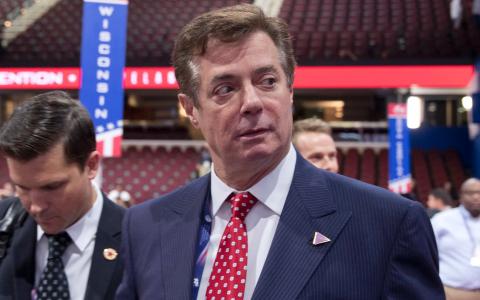
Massive data leak paradoxically aims too high on the financial food chain to catch the disgraced Trump campaign manager’s pedestrian use of easy-to-track foreign bank transactions.
Forget the Panama Papers. Last year’s leak of confidential documents relevant to the world’s most powerful people is now old news.
The Paradise Papers went public this weekend to reveal a fresh set of connections between those people and their favorite cross-border financial havens.
Paul Manafort doesn’t seem to be a big factor in the 1.4-terabyte data dump from Bermuda law firm Appleby Group. The revelations there focus on what real movers and shakers like the Queen of England and Commerce Secretary Wilbur Ross don’t disclose to their respective governments.
They’re also more about paying a premium for real protection from prying eyes — protection that has now been pierced. On that scale, Manafort with his claimed $28 million fortune is beneath attention.
Of course his own lack of sophistication doesn’t help. The most advanced asset protection vehicle in his portfolio seems to be a $4.5 million life insurance trust. Otherwise, there isn’t a lot of complicated international shell game going on here.
Easy to find, easy to catch
Instead of building offshore investment vehicles to hold a corporate empire, Manafort focused on parking cash in a variety of bank accounts in Cyprus as well as St. Vincent and the Grenadine islands in the Caribbean.
While those institutions can operate out of step with the global banking industry — Cyprus in particular serving as a known outlet for Russian cash — they still have an obligation to report U.S. citizens’ transactions to the IRS.
When the special counsel’s office demanded Manafort’s records, they complied. Any expectation of evading that outcome was doomed to disappointment. It’s that simple.
But once Mueller had proof that the accounts existed, it was trivial to check against Manafort’s disclosures and see that he’d failed to acknowledge the accounts.
That’s a crime under anti-money-laundering rules. It’s not complicated or esoteric. All Americans need to report their accounts to make sure they aren’t hiding taxable income from the IRS.
It looks like Manafort thought he could hide millions in lobbying income from Ukraine and other countries by simply opening the accounts in the names of various corporate shells.
Clients transferred cash to those accounts. Manafort had signatory power over the accounts even if his control over the actual entities was nebulous at best.
That signatory power gave him away. And once he got caught up in the Russia investigation, it got him in big trouble.
More layers required
I’m not going to tell a longtime political operative how to build a more robust under-the-radar money laundering operation. At this rate, a really good structure would probably only get leaked to the media sooner or later.
But staying out of trouble starts with doing everything you can by the book. Register as a foreign agent. Disclose the existence of the accounts and pay any required tax.
Don’t rock the boat by volunteering to run anyone’s high-profile political campaign.
A lot of global lobbyists follow the rules and don’t get woken up by federal marshals raiding their homes in the wee hours of the morning. Manafort let those details slide and is paying the price now.
Start with the way he got money out of those accounts by simply authorizing wire payments to people who owned real estate he wanted to buy.
If he wanted privacy, he could have set up a trust and send that money to a beneficiary who can fly under the radar, or else have had his clients pay the trust directly. The beneficiary or trust would then buy the houses and Mueller would need to work a little harder to track the cash.
Trusts can be more private than banks these days, even the ones in traditional havens like Switzerland and the islands. The IRS has a long reach.
Once the money had been converted into real estate, Manafort was brilliant at figuring out ways to get it back out to fund his lavish lifestyle. Refinancing houses he bought for cash liberated millions. Putting them to work as AirBnB rentals kept the cash flowing.
If not for trying to cover over the mysterious deposits at the beginning, it probably could have kept running for a long time, maybe even long enough. But the watchdogs can smell fear.
It’s no wonder he got caught. Compared to structures for hiding wealth that only come to light when the lawyer’s office is compromised, this was small-time stuff.
Check all the boxes and you’re just another lobbyist. Get ambitious when you need a low profile, and you’re asking for disaster.



